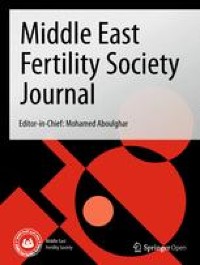erectile dysfunction treatment dysfunction (ED) is a prevalent situation that affects thousands and thousands of males worldwide, considerably impacting their quality of life and psychological effectively-being. Conventional treatments, together with phosphodiesterase type 5 inhibitors (PDE5i) like Viagra and Cialis, have been effective for a lot of, however not all patients reply to these medications. Latest advancements in medical analysis have led to the event of recent treatment modalities for ED, aiming to offer solutions for many who don't benefit from standard therapies. This report delves into the latest improvements in ED treatment, together with emerging pharmacological therapies, regenerative drugs approaches, and psychological interventions.
Understanding Erectile Dysfunction
Erectile dysfunction is defined as the lack to achieve or maintain an erection sufficient for satisfactory sexual efficiency. The condition can stem from various causes, including psychological elements (reminiscent of anxiety and depression), physiological points (like cardiovascular disease and diabetes), and way of life decisions (resembling smoking and obesity). The multifaceted nature of ED necessitates a comprehensive method to treatment, addressing both the physical and psychological components.

Present Treatment Landscape
The mostly prescribed treatments for ED are PDE5 inhibitors, which work by enhancing blood move to the penis. Nevertheless, these medications don't work for everyone, and they could have uncomfortable side effects that limit their use. Additionally, some males may be reluctant to hunt treatment due to stigma or embarrassment. Because of this, there is a pressing need for different therapies that may cater to a broader patient inhabitants.
Rising Pharmacological Therapies
- New PDE5 Inhibitors: Research continues to discover novel PDE5 inhibitors that will offer improved efficacy and fewer negative effects. For instance, avanafil (Stendra) is a newer option that has been shown to work sooner than conventional PDE5 inhibitors, offering flexibility for patients.
- Dopaminergic Agents: Medications that target dopamine pathways are being investigated for his or her potential to boost erectile function. Apomorphine, a centrally performing dopaminergic agent, has shown promise in clinical trials, although its use is limited attributable to uncomfortable side effects resembling nausea.
- Hormonal Therapies: Testosterone alternative therapy (TRT) is being explored for males with low testosterone ranges contributing to ED. Whereas TRT can enhance sexual operate, it must be carefully monitored resulting from potential unintended effects, including elevated risk of cardiovascular events.
- Intracavernosal Injections and Urethral Suppositories: Alprostadil, obtainable as an injection or a urethral suppository, can provide direct vasodilation and improve erections. New formulations and delivery strategies are being studied to boost patient compliance and satisfaction.
Regenerative Medication Approaches
- Platelet-Rich Plasma (PRP) Therapy: PRP therapy entails injecting concentrated platelets derived from a affected person's blood into the penis. The expansion components in PRP are thought to advertise tissue regeneration and enhance erectile operate. Preliminary research have shown promising outcomes, however additional analysis is needed to ascertain long-time period efficacy.
- Stem Cell Therapy: Stem cell therapy aims to restore broken tissues and restore regular erectile operate. Studies have indicated that stem cells can differentiate into endothelial and clean muscle cells, probably bettering blood move and erectile response. Whereas early outcomes are encouraging, more intensive clinical trials are required to assess security and effectiveness.
- Shockwave Therapy: Low-intensity shockwave therapy (LiSWT) is a non-invasive treatment that uses acoustic waves to stimulate blood stream and promote tissue regeneration within the penis. Clinical trials have proven that LiSWT can enhance erectile perform in males with vasculogenic ED, and it is being considered as a possible first-line treatment for certain patients.
Psychological Interventions
Psychological components play a big role in ED, and addressing these points is essential for effective treatment. Cognitive-behavioral therapy (CBT) and intercourse therapy can assist men and their companions navigate the emotional and relational points of ED. Current research have demonstrated that integrating psychological support with medical treatments can lead to higher outcomes and improved sexual satisfaction.

Way of life Modifications
Along with medical treatments, way of life modifications can considerably affect erectile dysfunction treatment function. If you liked this short article as well as you wish to obtain guidance regarding erectile dysfunction treatment - https://built.molvp.net/ - i implore you to check out the internet site. Encouraging patients to undertake healthier habits, equivalent to regular exercise, a balanced weight loss plan, smoking cessation, and weight management, can improve the effectiveness of medical treatments and enhance total health.
Conclusion
Erectile dysfunction is a posh situation that requires a multifaceted strategy to treatment. While conventional therapies like PDE5 inhibitors stay the cornerstone of ED management, rising treatments reminiscent of new pharmacological agents, regenerative medication methods, and psychological interventions offer hope for patients who don't reply to typical therapies. Ongoing research and clinical trials will proceed to increase our understanding of ED and lead to more effective and customized treatment options. As awareness grows and stigma decreases, it is important for healthcare suppliers to engage in open conversations with patients about their sexual health, guaranteeing that effective treatments are accessible to these in need. The future of ED treatment is promising, with progressive options on the horizon that can considerably improve the standard of life for males affected by this condition.







